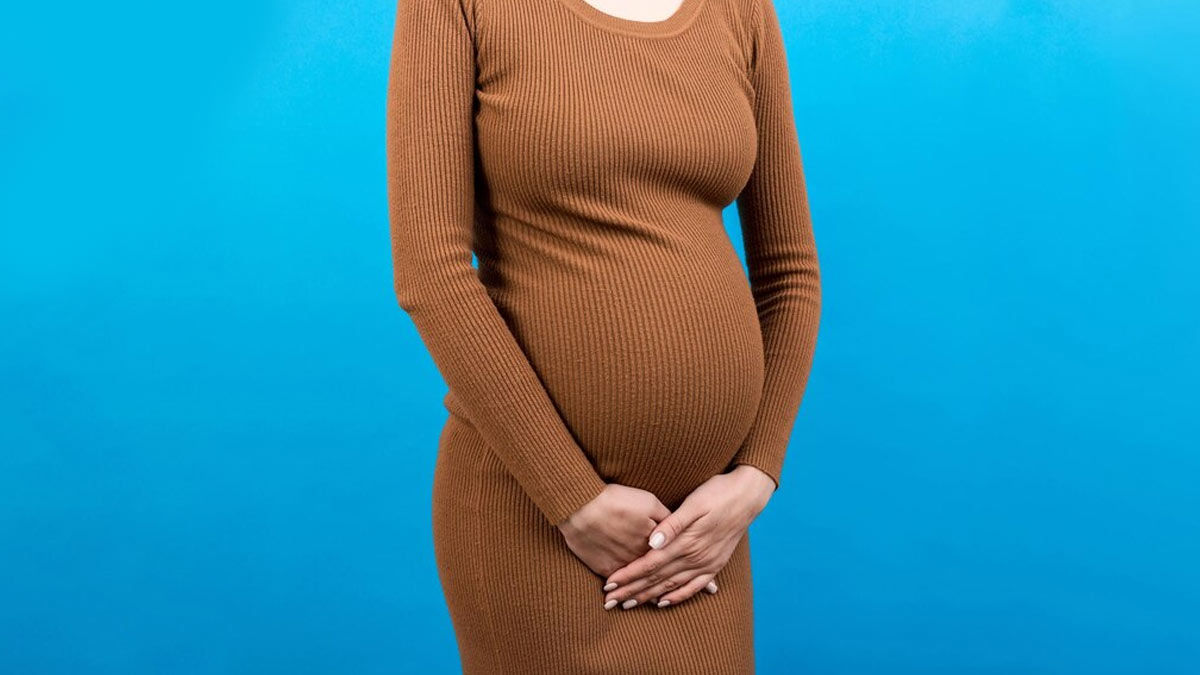
During pregnancy, a woman's body undergoes several physical changes, one of which can be urinary stasis. In this condition, urine stagnates or is not able to empty completely from the bladder, leading to a risk of Urinary Tract Infection (UTI) and other complications. We spoke to our expert Dr Swetha RV, MBBS, DNB (OBG), Consultant Obstetrics and Gynaecology, Apollo Cradle and Children’s Hospital, Rajajinagar, Bengaluru, who explained urinary stasis during pregnancy, its symptoms, and treatment measures.
Table of Content:-
What Is Urine Stagnation?

In a healthy urinary system, urine flows from the kidneys to the bladder through the ureters, where it is stored until it is expelled through the urethra during urination. “However, during pregnancy, the expanding uterus can press on the bladder, causing it to fill up rapidly and leading to frequent urination. This added pressure can prevent the bladder from emptying, resulting in urine stagnation”, explained Dr Swetha.
Also Read: Blood In Your Urine? Expert Lists Signs In Your Pee That Can Indicate Bladder Cancer
Symptoms of Urine Stagnation

Although occasional incomplete emptying may not be a cause for concern, it is important to visit a doctor if symptoms persist. Signs to look out for include:
- Frequent urination and infrequent urination
- The feeling of the bladder not being completely empty after urinating
- Frequent urge to urinate (urgency)
- Pelvic discomfort or pain
- Urine leakage (incontinence)
Diagnosis For Urinary Stasis During Pregnancy
“Diagnosing urinary stasis during pregnancy involves a combination of patient history, physical examination, and diagnostic tests. The physical examination and urine test can help rule out a UTI. Also, imaging tests, such as ultrasound or urodynamic studies may be used to assess bladder function and identify any underlying issues,” said Dr Swetha.
Treatment For Urinary Stasis During Pregnancy
Treatment of urinary stasis during pregnancy is essential and aims to reduce symptoms, prevent complications and ensure maternal and foetal well-being. Urinary stasis during pregnancy can be managed with lifestyle changes and conservative measures, such as:

- Hydration: Encouraging adequate fluid intake dilutes the urine and leads to frequent urination, which reduces the risk of infection.
- Frequent urination: Pregnant women are advised to urinate regularly, at least every 2-3 hours, to prevent excessive distension and stasis of the bladder. According to 2022 research, bacteria can multiply and cause a urinary tract infection when urine is left in the bladder for extended periods.
- Proper position: Using techniques, such as bending forward while urinating can help empty the bladder.
- Antibiotics: If a UTI is diagnosed, a course of antibiotics safe for use during pregnancy is prescribed by the doctor. It is important to complete the course of antibiotics to prevent recurrence and complications.
- Cranberry products: Cranberry juice or supplements may help prevent UTIs by preventing bacterial adhesion to the bladder wall. However, pregnant women should consult their healthcare provider before using these products.
- Pelvic floor exercises: Kegel exercises strengthen the pelvic floor muscles, improve bladder control and reduce urinary retention.
- Monitoring: Regular prenatal visits are necessary to monitor urinary retention and UTI symptoms. Any recurrence or persistent symptoms should be addressed immediately.
What To Expect
“Urine retention during pregnancy can be managed with lifestyle changes like increased water intake, proper toilet habits and Kegel exercises. Early diagnosis and regular monitoring by a doctor are important to prevent complications like UTIs and kidney infections,” said Dr Swetha. Although some women require techniques like double voiding during pregnancy, urinary retention resolves after delivery as the uterus is no longer pressing on the bladder.
Bottomline
Dr Swetha concluded, “Urine retention during pregnancy can be uncomfortable but is usually treatable. Prompt diagnosis and effective management are vital for preventing complications. If any symptoms of incomplete emptying of the bladder appear, consult a doctor immediately. Proper management and lifestyle changes can ensure a healthy pregnancy and reduce the risk of complications.”
[Disclaimer: This article contains information provided by an expert and is for informational purposes only. Hence, we advise you to consult your own professional if you are dealing with any health issues to avoid complications.]
Also watch this video
How we keep this article up to date:
We work with experts and keep a close eye on the latest in health and wellness. Whenever there is a new research or helpful information, we update our articles with accurate and useful advice.
Current Version